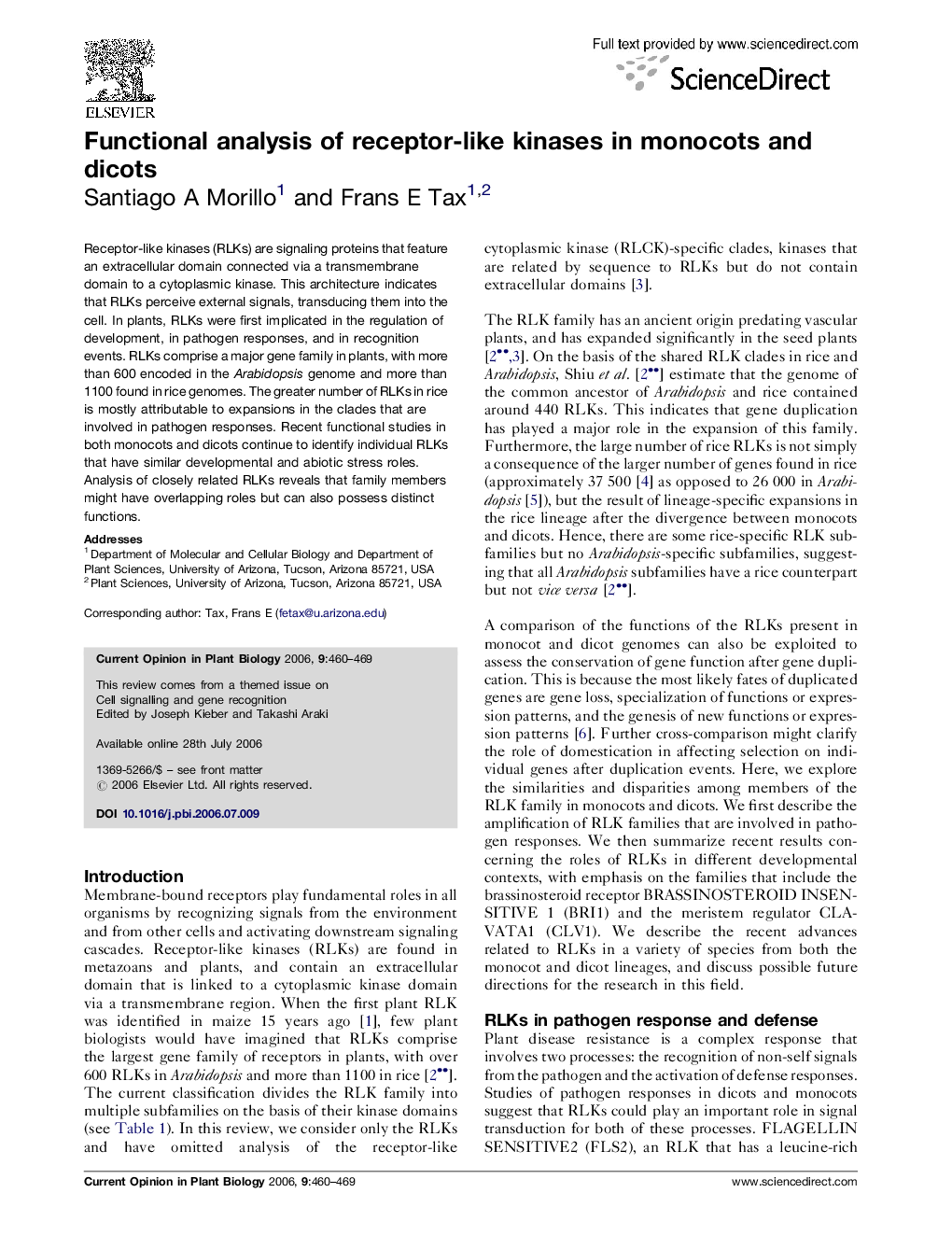| Article ID | Journal | Published Year | Pages | File Type |
|---|---|---|---|---|
| 2046762 | Current Opinion in Plant Biology | 2006 | 10 Pages |
Receptor-like kinases (RLKs) are signaling proteins that feature an extracellular domain connected via a transmembrane domain to a cytoplasmic kinase. This architecture indicates that RLKs perceive external signals, transducing them into the cell. In plants, RLKs were first implicated in the regulation of development, in pathogen responses, and in recognition events. RLKs comprise a major gene family in plants, with more than 600 encoded in the Arabidopsis genome and more than 1100 found in rice genomes. The greater number of RLKs in rice is mostly attributable to expansions in the clades that are involved in pathogen responses. Recent functional studies in both monocots and dicots continue to identify individual RLKs that have similar developmental and abiotic stress roles. Analysis of closely related RLKs reveals that family members might have overlapping roles but can also possess distinct functions.
